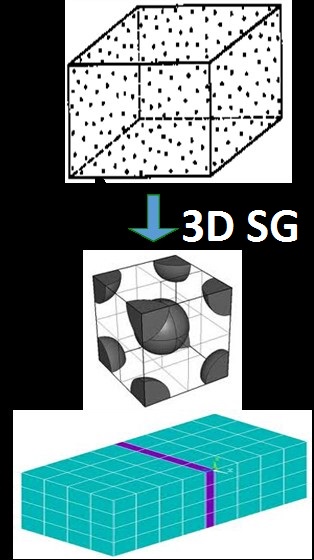
Let the material properties of the particle and matrix be:
Particle-E-glass: E11 =80 GPa, v12=0.2000 and
Matrix: E =3.35GP, ν=0.35
Particle volume of fraction is assumed to be 50%
The material properties are obtained from:
“Soden, P. D., Hinton M. J. and Kaddour, A. S., Lamina properties, lay-up configurations and loading conditions for a range of fibre reinforced composite laminates. Compos. Sci. Technol., 1998, 58(7), 1011”
youtube link:
https://youtu.be/XdmrqaI3wtw
Step 1: Input material properties
There are two materials namely particle/inclusion and matrix
a. Inclusion properties
b. Matrix properties
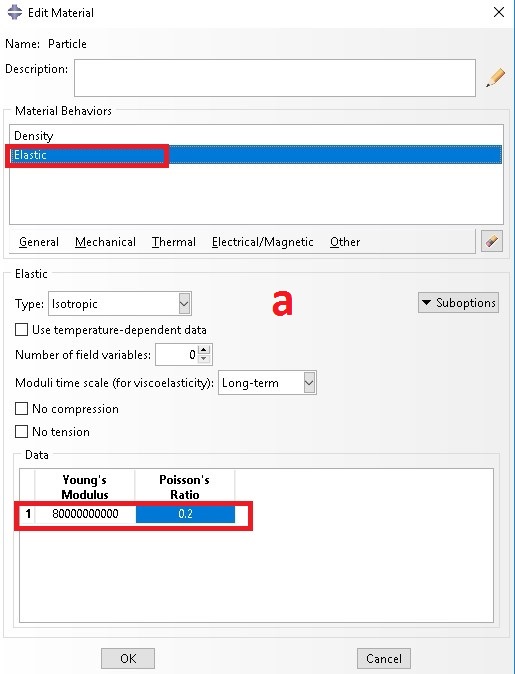
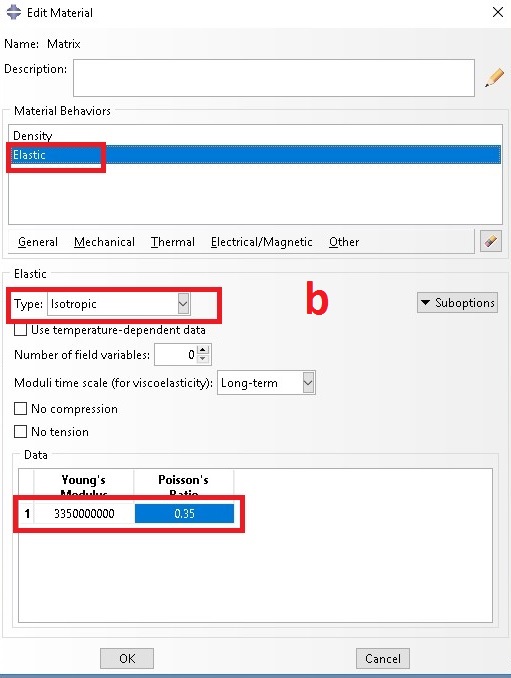
Step 2: Select appropriate SG
a. Select 3D SG that represent the current example
b. 3D SG wizard shows up
c. Select spherical inclusion as microstructure
d. Add inclusion volume fraction
e. Select material properties for inclusion and matrix
f. Click on OK to generate the SG
g. See generated 2D SG
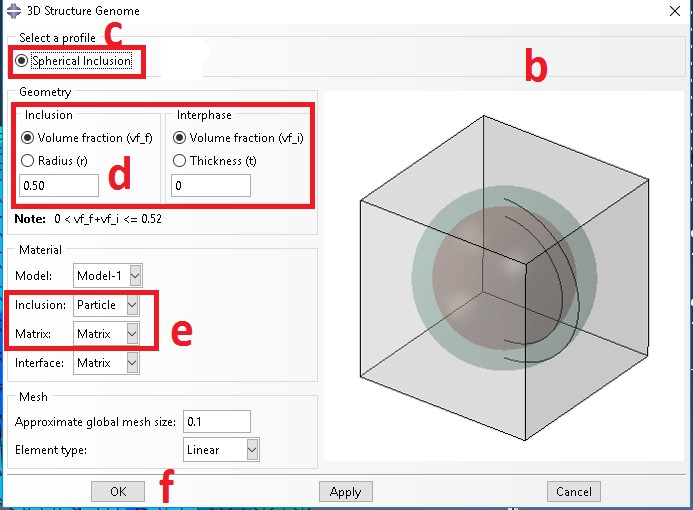
Step 3- Homogenization- 3D effective properties
a. Click on Homogenization
b. Homogenization wizard shows up ( see below)
c. Select 3D (solid) Model
d. Select analysis type, elastic
e. Click on OK to start homogenization
f. See the predicted 3D effective properties
Step 4: Perform dehomogenization
a. Select dehomogenzation

b. Dehomogenization wizard shows up
c. Select opt file
d. Add displacement to recovery displacement or strain loading to recover both local strain and stress, for current example problem let e11 be 0.005 and 2e23 be 0.002
e. Click on OK to start dehomogenization
f. See, dehomogenization
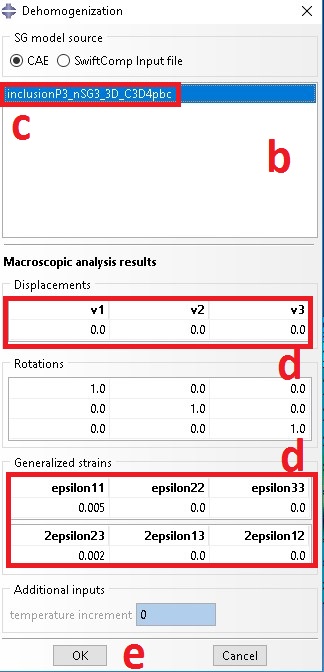
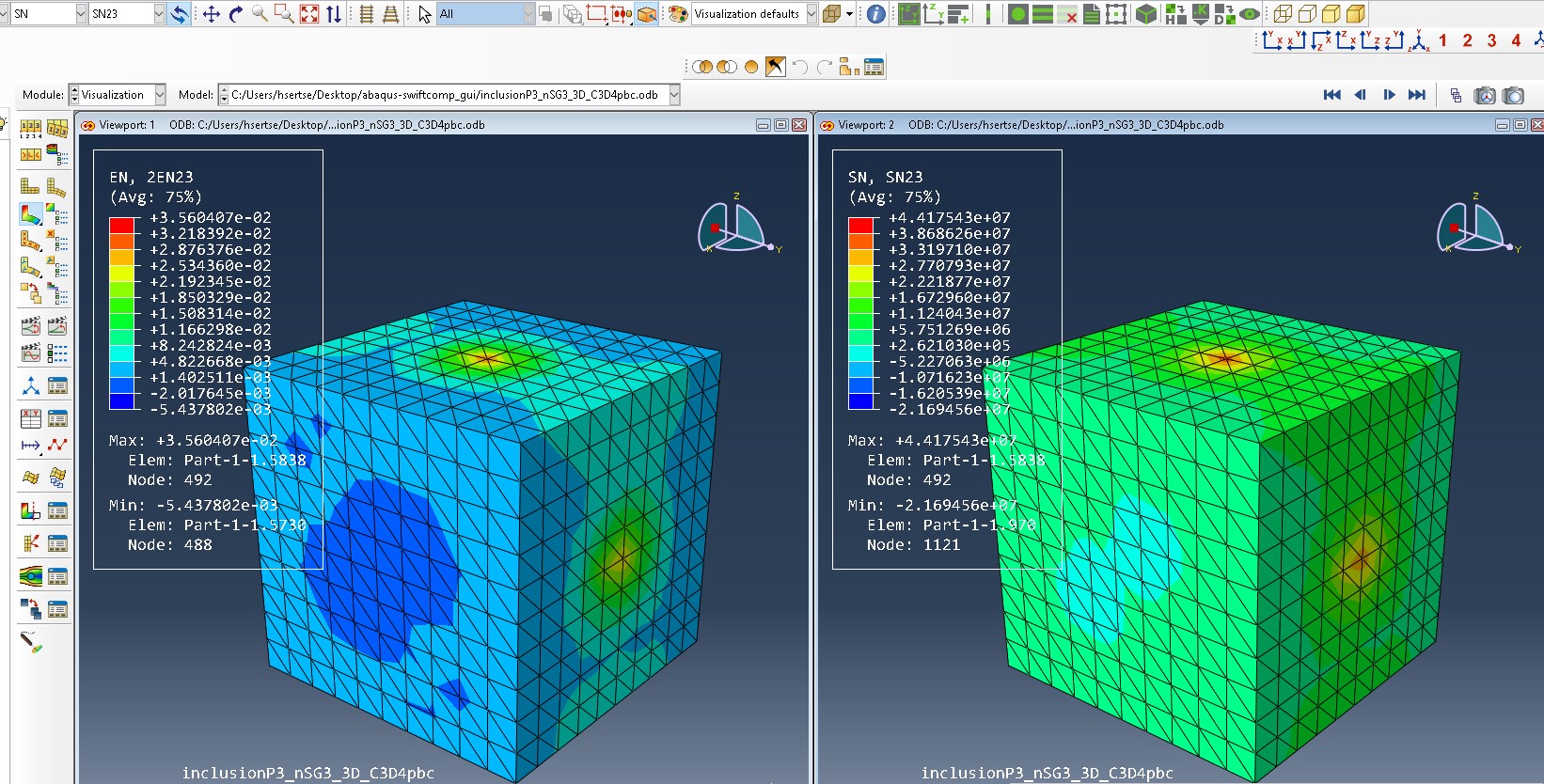
youtube link:
https://youtu.be/XdmrqaI3wtw